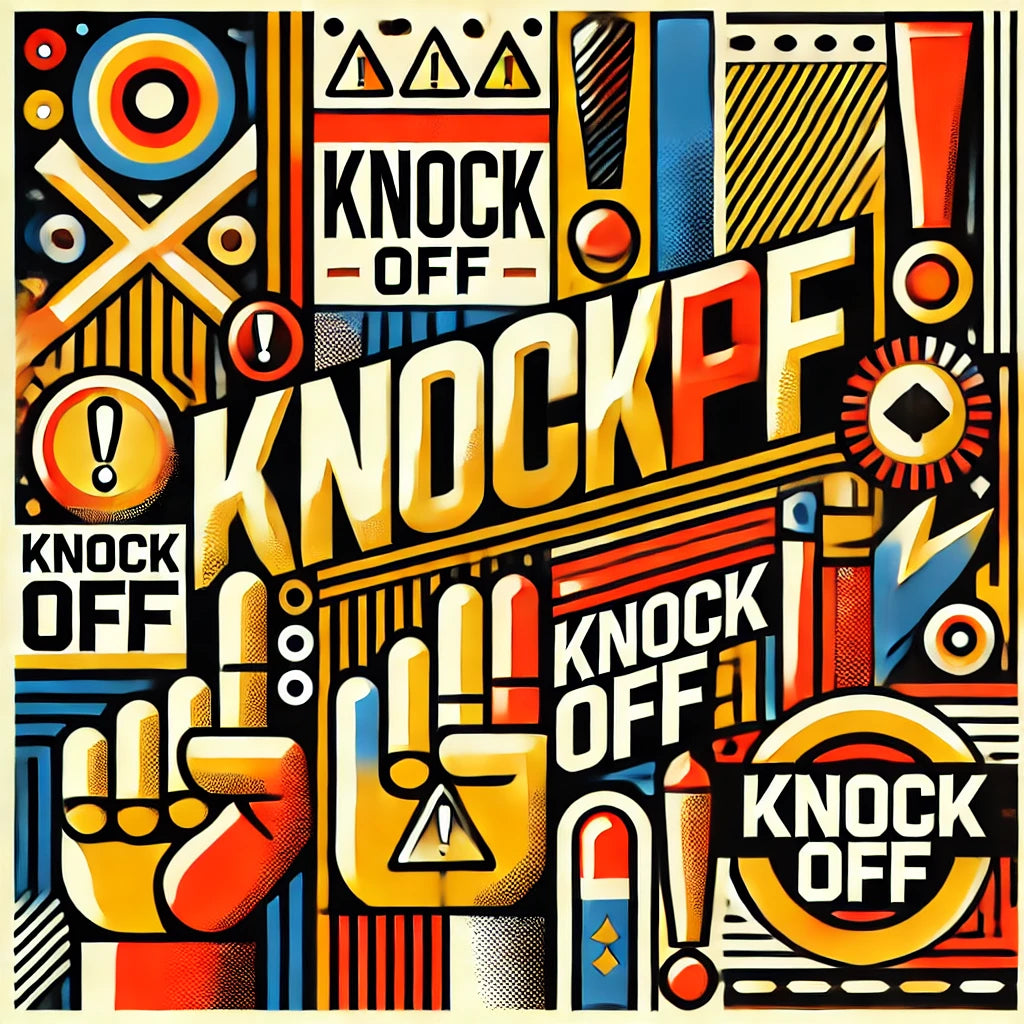When it comes to button-making machines, the market offers a wide range of options at various price points. A common temptation is to opt for cheap knock-off machines that are often advertised at lower prices. While these machines may seem like a good deal initially, they can lead to more problems than they solve. Here’s why you should avoid knock-off button-making machines and invest in reliable, high-quality equipment instead.
Important: Our supplies ARE NOT compatible with these machines.

1. Poor Build Quality
Knock-off button machines are often made from lower-quality materials, which directly impacts their durability and performance. These machines frequently use plastic parts or low-grade metal that are prone to breaking, bending, or wearing out after just a short period of use.
Why this matters: Button-making requires precision, and machines with cheap components are less likely to hold up over time. This can result in jams, misaligned buttons, and frequent breakdowns. Repairing or replacing parts can quickly outweigh any initial savings from purchasing the machine.
2. Inconsistent Results
A major issue with knock-off button machines is the lack of quality control. Many users report inconsistent results, with buttons often coming out crooked, improperly crimped, or not holding together at all. This is especially problematic if you’re making buttons for business purposes, where consistency and professionalism are key.
Why this matters: Inconsistent buttons not only waste materials but also make your products look unprofessional. When you’re relying on your machine to produce high-quality buttons, dealing with frequent errors can damage your brand’s image and result in wasted time and money.
3. Limited Support and Warranty
One of the biggest disadvantages of buying knock-off machines is the lack of customer support and limited or non-existent warranties. Many of these machines do not come with reliable warranties, and even if they do, getting support can be a hassle. Communication barriers, long shipping times for replacement parts, and a general lack of accountability make resolving issues time-consuming and frustrating.
Why this matters: If something goes wrong with your machine, you need fast and reliable support to get back to work. Without a solid warranty or responsive customer service, you could be stuck with a machine that doesn’t work and no way to fix it quickly.
4. Compatibility Issues
Knock-off button machines often have non-standard sizes or parts that don’t align with the industry standard, making it difficult to find compatible supplies. Many customers have reported that the parts they buy for these machines either don’t fit properly or are made from substandard materials that don’t work as expected.
Why this matters: If you run out of supplies, you don’t want to be scrambling to find replacements that fit your machine. Standardized machines make it easy to find high-quality supplies from a range of sources, ensuring your production stays consistent and stress-free.
5. Hidden Costs
While knock-off button machines may appear cheaper upfront, hidden costs can quickly add up. Frequent breakdowns, the need for replacement parts, wasted materials from inconsistent production, and the time lost to troubleshooting issues can make these machines much more expensive in the long run.
Why this matters: What you save in the initial purchase price can quickly be lost in repair costs and production delays. Investing in a higher-quality machine from the start can save you money, time, and headaches in the future.
6. Ethical and Environmental Concerns
Many knock-off manufacturers operate under looser environmental and labor regulations, raising concerns about the sustainability and ethics of their production processes. Machines made under poor working conditions or with minimal environmental oversight can contribute to larger issues that go beyond button making.
Why this matters: By choosing higher-quality, ethically made machines, you can feel confident that you are supporting responsible manufacturing practices that prioritize both worker safety and environmental care.
Conclusion
While knock-off button machines may seem like a cost-effective option at first glance, they often come with serious drawbacks in terms of quality, consistency, support, and long-term costs. Investing in a reliable, well-made button-making machine will save you time, money, and frustration in the long run, ensuring that you can produce professional-quality buttons with ease and confidence.
Don’t be tempted by low price tags—choose quality and reliability for a smoother button-making experience.



